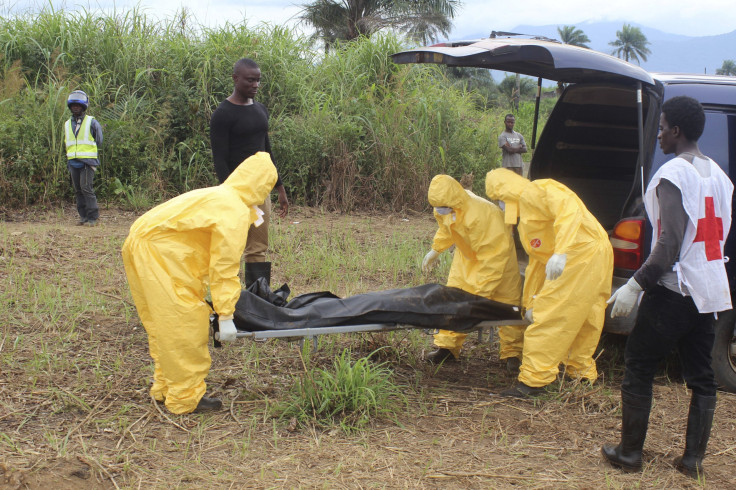Stopping Ebola Will Require Overhaul Of Funeral Practices, Better Protection For Health Workers

The level of panic Ebola has raised in the U.S. is unprecedented, and unnecessary, as only a handful of people have been diagnosed with the disease — and subsequently treated. The real cause for panic should come from the West African countries, namely Liberia, Sierra Leone, and Guinea, where the virus has spread like wildfire. The World Health Organization suspects the virus will eventually infect 10,000 people per week if it’s not stopped. At the center of this struggle has been a slew of issues health care workers face. A new study delves into these, and suggests some solutions.
As of Oct. 29, there have been over 13,700 cases of the viral disease worldwide, and nearly 5,000 deaths, with the majority of them in Liberia. Health care workers face many obstacles treating all these people. Not only are medical centers and their health workers ill-prepared, but with the region still recovering from war, residents are distrusting of health and government authorities. As a result, families are caring for their own Ebola-stricken members in secrecy. And it gets worse; many of these families, and those who actually report Ebola cases, still partake in traditional funeral practices.
“The cultural body preparation and funeral practices that are common in West Africa have driven the initial spread of this disease,” said study author Jan Medlock, assistant professor at the Oregon State University Department of Biomedical Sciences, in a press release. “These funeral practices often included washing, touching, and kissing of bodies that were still capable of spreading the Ebola virus. It is imperative that funeral transmission be stopped.”
After poring over complex mathematical models, the researchers determined that the current situation would lead to a rate of 224 new infections daily by Dec. 1, and 348 new infections daily by Dec. 30. To counter this, health workers will need to reduce the number of new infections by reducing what they called the “basic reproductive number” to less than one. Right now, that number in Liberia is estimated to be around 1.63, meaning that for every two people that are infected, three others will likely get infected too.
To get that number down, the researchers suggested sanitizing the dead bodies, putting them in plastic bags, and then sanitizing again. In addition to that, they suggest larger interventions with regards to seeking out those who are caring for Ebola patients secretly, more effective practices when it comes to isolating and quarantining patients, and having health workers wear better protection.
“Ebola poses an urgent threat not only to West Africa but also to the international community” the researchers wrote. “The implementation of effective interventions needed to reverse the growth of the Ebola outbreak in impoverished West African countries will be logistically challenging even with substantial international aid, but impossible without it.”
Earlier this month, the World Bank estimated that the cost of the outbreak in the West African nations could amount to as much as $32 billion by the end of 2015. With such grave circumstances, however, ending the outbreak might have to come at whatever cost it takes.
Source: Medlock J. Science. 2014.



























